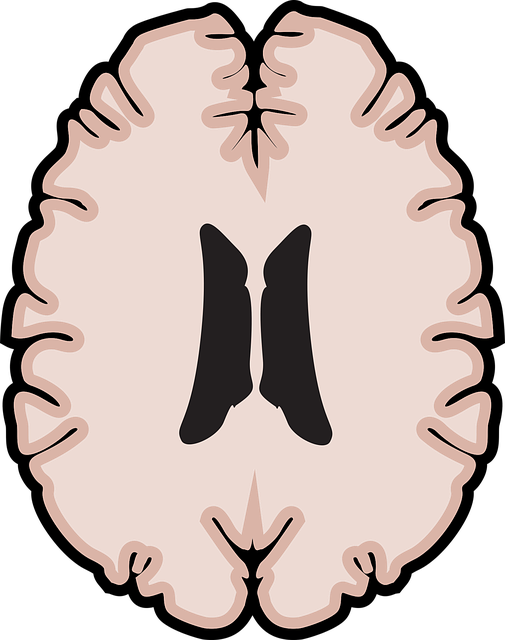Community outreach programs tailored to young adults with chronic illnesses offer a holistic approach, combining therapy, empathy-building, and support networks. These initiatives bridge the medical-social gap, reduce stigma through awareness campaigns, and create safe spaces for emotional healing. Key features include personalized therapy focusing on physical health and mental well-being, family involvement, and open dialogue. Effective programs integrate mindfulness meditation, emotional regulation techniques, and social skills training. Measuring success involves participant satisfaction and long-term outcomes like improved mental health and increased social connections. Regular evaluation ensures sustainability through diverse funding, partnerships, and risk management strategies, ultimately enhancing the quality of life for young adults dealing with chronic conditions.
Community outreach programs play a pivotal role in supporting young adults living with chronic illnesses, offering valuable therapy and enhancing their overall well-being. This article delves into the essential elements of successful initiatives, from understanding the unique needs of this demographic to implementing personalized support networks. We explore effective strategies for program design, engaging families and caregivers, and measuring long-term impact. By focusing on these key areas, communities can foster inclusive environments tailored to young adults navigating chronic illness.
- Understanding Community Outreach for Young Adults with Chronic Illnesses
- The Impact of Personalized Support Networks
- Strategies for Effective Program Design and Implementation
- Engaging Families and Caregivers in the Process
- Measuring Success and Long-term Sustainability
Understanding Community Outreach for Young Adults with Chronic Illnesses

Community outreach programs play a pivotal role in supporting young adults living with chronic illnesses. These initiatives aim to bridge the gap between medical care and social well-being, focusing on the unique challenges faced by this demographic. By implementing tailored strategies, such as therapy sessions designed for young adults with chronic illnesses, outreach programs can foster a sense of community and belonging.
Empathy building strategies are integral to these efforts. Public awareness campaigns development helps reduce stigma and promotes understanding among peers and the broader community. Furthermore, these programs facilitate emotional healing processes by providing safe spaces for sharing experiences and connecting with others who possess similar journeys. The goal is to enhance not just physical health but also mental resilience and overall quality of life for young adults navigating chronic illness.
The Impact of Personalized Support Networks

Personalized support networks play a pivotal role in enhancing the lives of young adults grappling with chronic illnesses. These networks, tailored to individual needs, offer a sense of community and belonging, which is particularly crucial during a time when mental health challenges are prevalent. Through targeted outreach programs, mental health professionals can facilitate connections between individuals with similar experiences, fostering a supportive environment that encourages open dialogue and empathy-building strategies.
Effective community outreach program implementation involves risk management planning to ensure the well-being of both participants and practitioners. By focusing on personalized support, these initiatives not only empower young adults with chronic illnesses but also contribute to broader mental health professional development. Strategies that emphasize active listening, cultural competency, and adaptive communication techniques enable professionals to navigate complex emotional landscapes, ultimately enhancing their ability to provide quality care within community settings.
Strategies for Effective Program Design and Implementation

Designing and implementing a successful community outreach program requires a strategic approach, especially when focusing on support for young adults with chronic illnesses. One key strategy is to integrate therapeutic practices that promote emotional well-being. Mindfulness meditation, for instance, can be a powerful tool to enhance coping mechanisms and resilience in this demographic. By incorporating sessions into the program, participants can learn valuable skills to manage stress and improve their overall mental health.
Additionally, fostering a sense of community is essential. Encouraging open dialogue and building social connections can provide emotional support and create a safe space for young adults to share their experiences. Educating peers about chronic illness and its impact on mental health, through workshops or awareness campaigns, fosters empathy and understanding within the community. This, in turn, can lead to better support systems and improved access to resources tailored to the unique needs of this population.
Engaging Families and Caregivers in the Process

Involving families and caregivers is a pivotal aspect of successful community outreach programs, especially when targeting young adults grappling with chronic illnesses. This collaborative approach ensures that support systems are strengthened, enabling individuals to manage their conditions more effectively. By engaging parents, siblings, or primary caregivers, the program can offer holistic care. These family members play a crucial role in reinforcing positive behaviors and facilitating access to therapy for young adults chronic illness management.
Integrating emotional regulation techniques, social skills training, and stress reduction methods into these outreach programs empowers both the patients and their caregivers. Such strategies foster resilience, enhance coping mechanisms, and promote a sense of community among participants. Through shared learning and support, families become advocates for their loved ones’ well-being, contributing to improved health outcomes and overall quality of life.
Measuring Success and Long-term Sustainability

Measuring the success of community outreach programs, particularly those focusing on therapy for young adults with chronic illnesses, is paramount to ensure their long-term sustainability and impact. Key performance indicators (KPIs) should include not only immediate participant satisfaction but also longer-term outcomes such as improved mental health, increased social connectedness, and enhanced coping mechanisms. Regular data collection through surveys, interviews, and observation can provide valuable insights into the program’s effectiveness.
Long-term sustainability requires a multifaceted approach. This includes securing consistent funding streams, building strong partnerships with local organizations, and implementing risk management planning for mental health professionals to mitigate potential challenges. Additionally, integrating crisis intervention guidance and trauma support services within the program structure can better equip participants to navigate future obstacles. Regular evaluation and adaptation based on these metrics will ensure that outreach programs remain relevant, effective, and resilient in addressing the unique needs of young adults grappling with chronic illnesses.
Community outreach programs offer a promising approach to enhancing the lives of young adults grappling with chronic illnesses. By implementing tailored support networks, these initiatives empower individuals to manage their health effectively while fostering social connections. Through strategic design, engagement with families and caregivers, and robust measurement practices, community outreach can become a sustainable game-changer in providing therapy for young adults with chronic illnesses. This holistic approach ensures long-term benefits, enabling participants to thrive both physically and emotionally within their communities.














